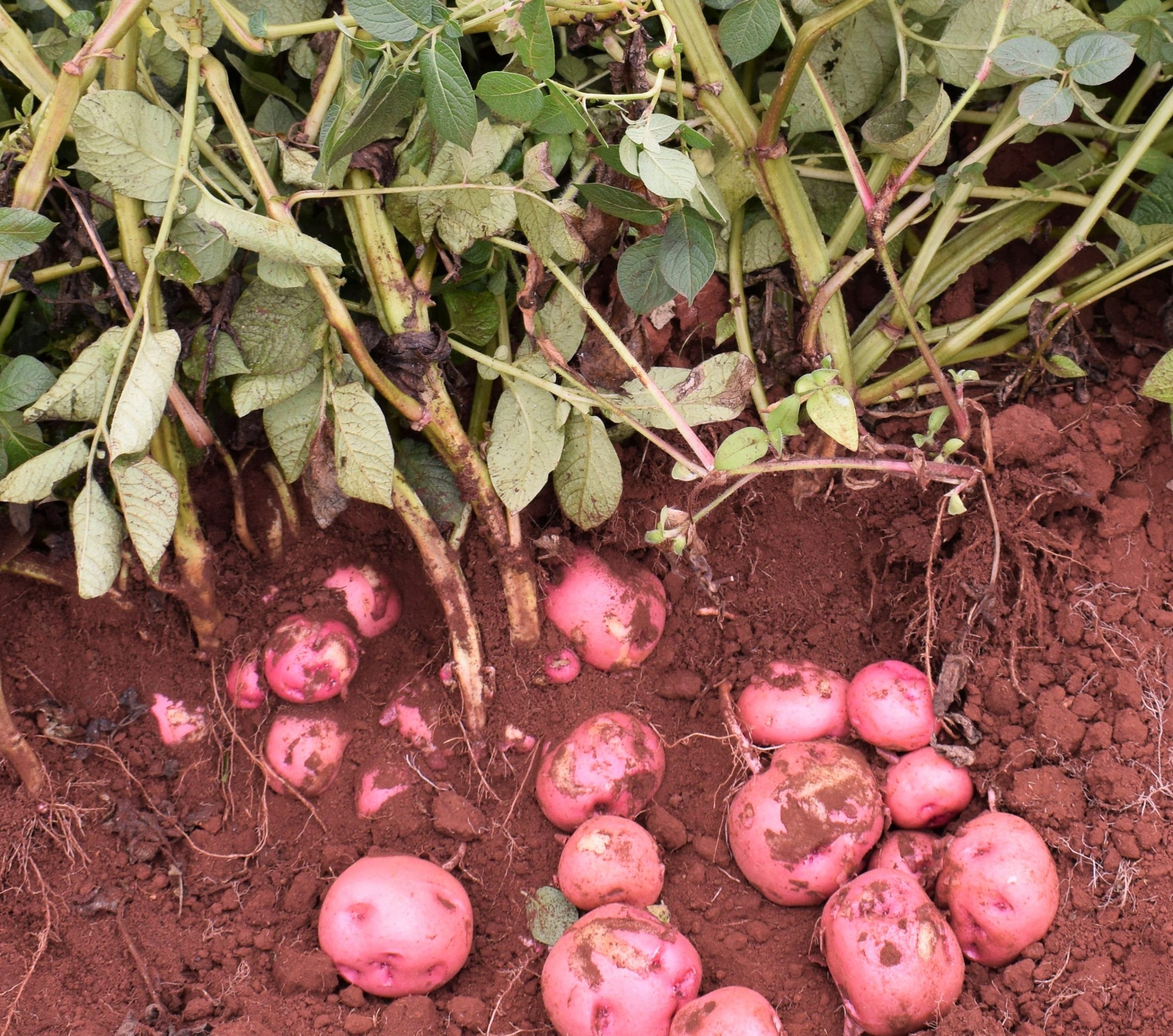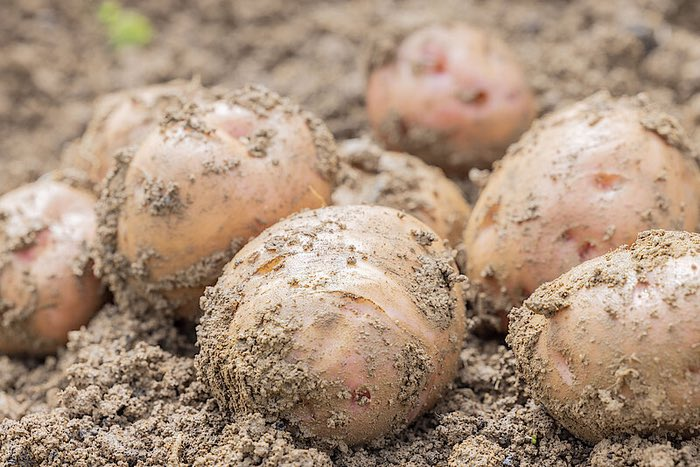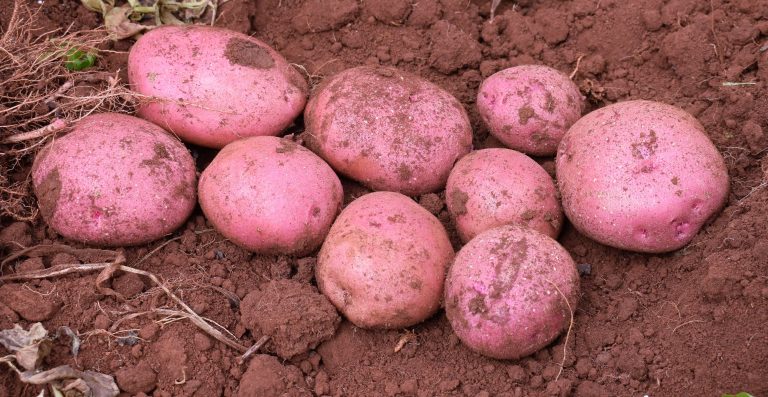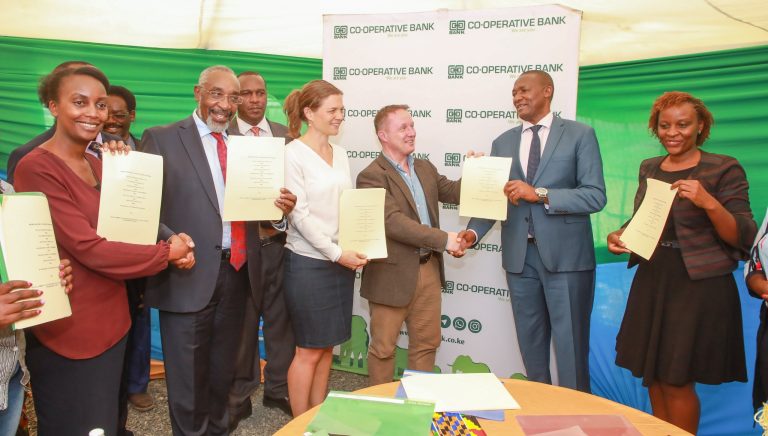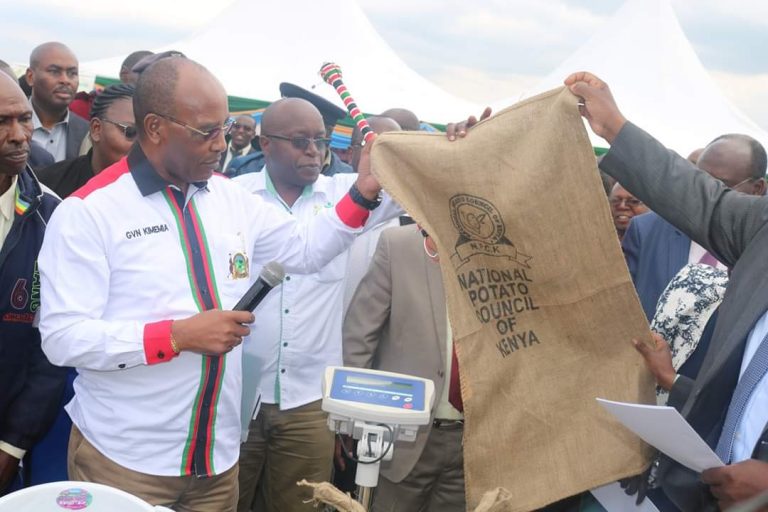Modern potato varieties boosting smallholder farmers’ income
Smallholder potato farmers in Kenya have been going through various challenges which have affected their production and income over the years. From poor planting seeds, harsh weather conditions to exploitation by brokers, they have earned less compared to the amount of money, labour and time they invest in potato farming. This is despite the fact that potatoes are a key staple food, second only to maize as the potato value chain has been underdeveloped for decades.
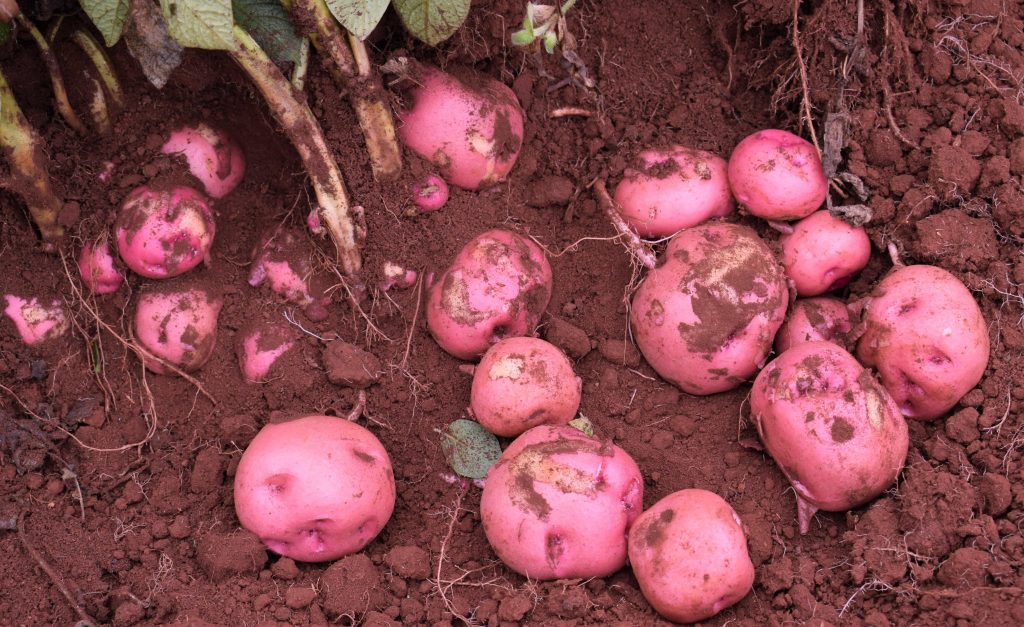
In the Kenyan Highlands, potatoes are grown on smallholdings ranging from one to four acres, with the overall potato acreage estimated at around 160,000 ha. There is, however, a significant gap between the current output average of 7 tons per ha and the yield potential of around 50 tons per ha that is realized in many other countries. Moreover, the Kenyan potato value chain is also much less developed and less efficient than it could be. As a result, Kenya has been forced to import large number of potatoes especially from Tanzania . As a result, Kenyan smallholders farmers’ income is much lower than it could easily be.
In 2019 a private-public partnership – centered around and throughout the potato value chain – was established to change this situation. The objective was to find a way of boosting the Kenyan smallholder farmer’s income. The plan was using an integral value chain approach, in which potato smallholders were provided access to
- modern and affordable seed potatoes
- fertilisers
- chemicals
- technology
- knowledge
- markets
- finance.
Agrico East Africa supplied certified potato seed tubers of modern potato varieties, matching off-takers’ high-quality requirements. The basic fertilizer program was modified using innovations from the project partner YARA East Africa. Control of pests and diseases was optimized through Bayer’s latest innovations. Quipbank Trust Ltd. supported the smallholders with modern ploughing, harrowing and ridging equipment. Carrefour – a renowned large retailer – purchased the produced potatoes from the farmers. And last but not least, Siraji Sacco stepped into the project with micro-financing support.The County governments provided their support through their Agricultural Extension Services staff.
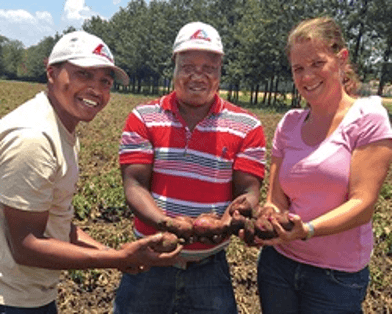
Agrico EA’s Smallholder Training & Extension Manager, displaying some of the harvested potatoes.
Demonstration plots were established on half-acre plots in Narok, Meru and Molo Counties and were used as a live classroom. Throughout the entire potato growing cycle, all partners transferred their expertise to a total of 2,000 potato smallholders in the use of modern certified seed potatoes, the correct application of fertilizer and crop protection products to improve yields.
Details of all the input costs, yields and market prices were collected to calculate smallholder income and profitability. The benefits of the training and innovations were measured for three different farmer groups:
- The basic smallholder who received no support and used his common potato varieties as input;
- The advanced smallholder who planted his common potato varieties and received coaching, agronomic training, and some fertilizer and crop protection innovations and
- The connected smallholder who received coaching, training and the full innovative input of modern seed potato varieties, fertilizer and crop protection products, as well as a secured selling connection via the project retail partner Carrefour.
In 2019 the climate was unpredictable in Kenya. There were long droughts first, followed by heavy rains and flushes afterwards. Even under these harsh weather conditions the public-private co-operation initiative showed an improved potato smallholders’ yield and income. The adoption of innovations and favourable value chain development paid off with increased marketable yields as the foundation for higher incomes and increased food security. An analysis of the input costs revealed that adopting the innovations reduced the production cost of 1 kg of marketable potatoes from Kshs.30 to Kshs.11. The farmers saw their yields go up from the national average of 7 tons/ha to as high as 49 tons per hectare. These increased yields combined with premium prices from Carrefour Supermarkets resulted in an average farmers’ gross income that was 9 times higher than common practice.
The results of the integrated value chain approach generated a lot of positive energy. Both public and private partners expressed a great deal of interest in cooperating further and expanding this successful potato value chain approach to other Kenyan counties with the overall aim of increasing farm incomes through connected smallholders. It was also noted that modern potato varieties are boosting smallholders’ income throughout all Kenya


